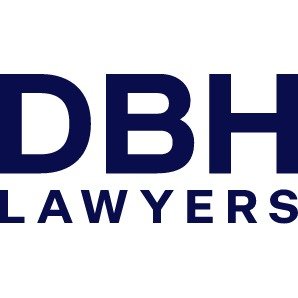Best Elder Abuse Law Lawyers in Salisbury
Share your needs with us, get contacted by law firms.
Free. Takes 2 min.
List of the best lawyers in Salisbury, Australia
About Elder Abuse Law in Salisbury, Australia
Elder abuse refers to intentional or negligent acts by a caregiver or trusted individual that lead to harm or risk of harm to an older person. In Salisbury, Australia, elder abuse is recognized as a serious issue, and the law provides mechanisms to protect elderly individuals from physical, emotional, financial, and psychological harm, as well as neglect. Elder Abuse Law in Australia falls under both state and federal jurisdictions, involving protection orders, mandatory reporting requirements, and specialized legal remedies aimed at safeguarding vulnerable older adults.
Why You May Need a Lawyer
There are various situations where seeking legal advice or representation in Elder Abuse Law becomes necessary. For example, if you suspect that an elderly relative or friend is being abused, a lawyer can provide guidance on how to report the abuse and legally protect the victim. Legal assistance might also be needed if there are issues regarding the guardianship or power of attorney arrangements that are being mishandled. Furthermore, if you're an older person facing abuse, a lawyer can help you understand your rights and represent you in seeking protective orders or resolving disputes.
Local Laws Overview
The legal framework in Salisbury concerning elder abuse incorporates both state and federal laws. Key aspects include the Adult Safeguarding Unit in South Australia, which has the authority to investigate cases of elder abuse, and the Age Discrimination Act 2004, which ensures older adults are not discriminated against. Additionally, the Powers of Attorney and Agency Act 1984 outlines the legal responsibilities concerning financial and medical decisions made on behalf of seniors, ensuring that those entrusted with such powers are acting in the individual's best interests.
Frequently Asked Questions
What constitutes elder abuse under local law?
Elder abuse includes physical, emotional, and sexual abuse, as well as financial exploitation and neglect. It encompasses any conduct that results in harm or distress to an older person.
How can I report elder abuse in Salisbury?
You can report suspected elder abuse to the Adult Safeguarding Unit or contact the police if immediate harm is anticipated. Additionally, resources like elder helplines can guide you through the reporting process.
Are there mandatory reporting laws for elder abuse in South Australia?
Yes, certain professionals are mandated by law to report suspected elder abuse, including health care workers and social workers. They must adhere to protocols designed to protect vulnerable elderly individuals.
What legal protections are available for victims of elder abuse?
Victims can seek legal orders for protection, engage in civil litigation to recover lost assets, or have advocated support through guardianship and financial management orders.
Can elder abuse cases lead to criminal charges?
Yes, perpetrators of elder abuse can face criminal charges, especially in cases involving physical violence, financial exploitation, or severe neglect, which are punishable by law.
How does power of attorney impact elder abuse cases?
Power of attorney can be a significant factor; misuse can constitute financial abuse. Legal action can be pursued to revoke or challenge an abused power of attorney.
What role does the Adult Safeguarding Unit play?
The Unit investigates abuse reports, coordinates response services, and offers support to older adults experiencing or at risk of abuse.
Is financial exploitation addressed under elder abuse laws?
Yes, financial exploitation is recognized as a form of elder abuse and is subject to legal remedies to protect the assets and financial well-being of older adults.
Can elder abuse affect guardianship arrangements?
Yes, abuse allegations can lead to the reassessment, alteration, or revocation of guardianship arrangements to protect the interests of the older person.
What if the elder victim refuses help?
Sometimes, victims may decline assistance due to fear or dependency. In such cases, legal advice can help family members or concerned parties understand how to proceed while respecting the person’s autonomy.
Additional Resources
There are several resources available for those seeking advice or assistance regarding elder abuse in Salisbury, Australia. The Council on the Ageing (COTA) offers advocacy and assistance. Legal Services Commission of South Australia provides legal advice and information. The Older Persons Advocacy Network (OPAN) offers a range of support services nationally.
Next Steps
If you need legal assistance regarding elder abuse, it's crucial to act promptly. Start by consulting with a lawyer who specializes in elder law to understand your options. Collect any evidence of abuse, such as documentation, witness accounts, and financial records. Make contact with local authorities or protective services to report the abuse if necessary. Legal professionals can offer guidance on protective orders, litigation, and ensuring the safety and rights of the elderly person involved.
Lawzana helps you find the best lawyers and law firms in Salisbury through a curated and pre-screened list of qualified legal professionals. Our platform offers rankings and detailed profiles of attorneys and law firms, allowing you to compare based on practice areas, including Elder Abuse Law, experience, and client feedback.
Each profile includes a description of the firm's areas of practice, client reviews, team members and partners, year of establishment, spoken languages, office locations, contact information, social media presence, and any published articles or resources. Most firms on our platform speak English and are experienced in both local and international legal matters.
Get a quote from top-rated law firms in Salisbury, Australia — quickly, securely, and without unnecessary hassle.
Disclaimer:
The information provided on this page is for general informational purposes only and does not constitute legal advice. While we strive to ensure the accuracy and relevance of the content, legal information may change over time, and interpretations of the law can vary. You should always consult with a qualified legal professional for advice specific to your situation.
We disclaim all liability for actions taken or not taken based on the content of this page. If you believe any information is incorrect or outdated, please contact us, and we will review and update it where appropriate.










